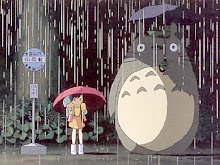Question: Briefly compare and contrast any two waste disposal schemes and decide which one might be more suitable for you country.
The zero waste system is more suitable for China than landfilling
Zero waste is a system in which everything we buy is “made from materials that can be repaired, reused or recycled” (Collins, 2002). Landfilling is a way to dispose waste where all the waste is just dumped together. It seems that for China, the difficulty in adopting the zero waste system is the huge expense in making the materials repairable, reusable and recyclable; the huge expense would raise the price of zero waste products and people would be unable to afford buying them. However, in the long run, keeping carrying out landfilling can be more “expensive” than adopting the zero waste system.
The zero waste system could save money in terms of three aspects. The zero waste system would save money for the consumers. Zero waste products are repairable, which in a way extends the average lifetime of the products. Zero waste products are recyclable, which enables the owners to sell the broken devices and to get back some money. Furthermore, the zero waste system would save resources for the society. Implementing the zero waste system, manufacturers would rather recycle their own products than buy new materials because of the low price, which would save the material resources. Since the recycled materials are already purified and refined, energy sources are saved by using recycled materials than mining and processing new materials. Moreover, the zero waste system could generate job opportunities as society needs labor to repair the broken devices and to collect those recyclable products. Consequently, the zero waste system would not add heavy burden to the society.
In contrast, landfilling would be expensive regarding the cost of keep making new products and the cost of land. The lifetime of normal products is relatively short and they become worthless immediately after they break down, which costs the consumers buying new ones and wastes the resources of the society. Besides, landfilling significantly does harm to the land resource. Firstly, landfilling requires land where the waste can be buried or dumped. Obviously, not only the land occupied by the garbage heaps but also large area beside the heaps is not suitable to be utilized because of the bad smell and low sanitation quality. Secondly, when the waste rods, it releases poison to the fields and further to the underground water. The poison spreads all the way along the underground river and erodes the soil. When the soil becomes unfertilized, the crops cannot grow well. It is a common sense among Chinese that China has raised up 21 percent of the world’s population using 7 percent of the world’s land. We cannot afford any more loss of fertilized land.
Compared to landfilling, the zero waste system would save money, save resources and create job opportunities for society. As a conclusion, China should implement the zero waste system to replace landfilling in order to obtain a sustainable way to deal with the waste.
Reference:
Collins, J. (2002, Oct 3rd). Radical plans for waste could herald a big clean up. The Grardian Weekly. P. 25.
Subscribe to:
Post Comments (Atom)


2 comments:
I don't think the zero waste will povide consumers lower prices.
Good control of idea! The post answers the questions raised before reading it. Good job!
It will be even more interesting if you can add in the relevance of implementing it in China i.e. focus and relate more to China. Too bad it's a TIMED paragraph right? =p
Post a Comment